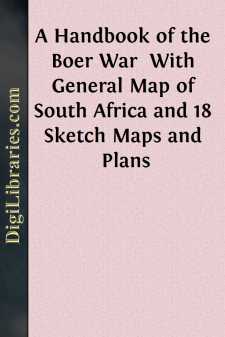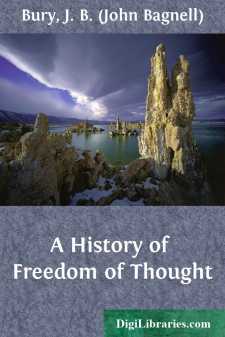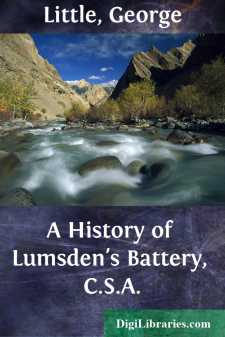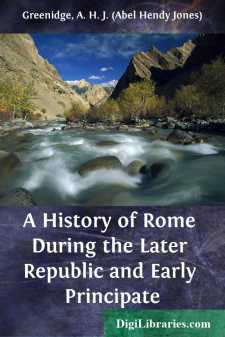History
- Africa 30
- Americas (North Central South West Indies) 50
- Ancient 68
- Asia 58
- Australia & New Zealand 8
- Canada 41
- Caribbean & West Indies 1
- Civilization 20
- Eastern Europe 12
- Europe 310
- Expeditions & Discoveries 60
- General 77
- Historical Geography 1
- Jewish 9
- Latin America 3
- Medieval 8
- Middle East 13
- Military 248
- Revolutionary 8
- Study & Teaching 5
- United States 353
- Western Europe 56
- World 13
History Books
Sort by:
by:
Unknown
I. THE ROUNDHEADS OF SOUTH AFRICA History often reproduces without reference to nationality some particular human type or class which becomes active and predominant for a time, and fades away when its task is finished. It is, however, not utterly lost, for the germ of it lies dormant yet ready to re-appear when the exigencies of the moment recall it. The reserve forces of human nature are inexhaustible...
more...
I. THE PERIOD OF LEGEND The blending of fact and fancy which men call legend reached its fullest and richest expression in the golden age of Greece, and thus it is to Greek mythology that one must turn for the best form of any legend which foreshadows history. Yet the prevalence of legends regarding flight, existing in the records of practically every race, shows that this form of transit was a dream...
more...
by:
Wolfram Eberhard
Chapter One 1 Sources for the earliest history Until recently we were dependent for the beginnings of Chinese history on the written Chinese tradition. According to these sources China's history began either about 4000 B.C. or about 2700 B.C. with a succession of wise emperors who "invented" the elements of a civilization, such as clothing, the preparation of food, marriage, and a state...
more...
PREFACE. Once more I come before the public with a work on the history of a nation which is not mine by birth. It is the ambition of all nations which enjoy a literary culture to possess a harmonious and vivid narrative of their own past history. And it is of inestimable value to any people to obtain such a narrative, which shall comprehend all epochs, be true to fact and, while resting on thorough...
more...
CHAPTER I FREEDOM OF THOUGHT AND THE FORCES AGAINST IT IT is a common saying that thought is free. A man can never be hindered from thinking whatever he chooses so long as he conceals what he thinks. The working of his mind is limited only by the bounds of his experience and the power of his imagination. But this natural liberty of private thinking is of little value. It is unsatisfactory and even...
more...
PREFACE The history of Giggleswick School has just two difficulties about it which need to be unravelled. The date of the foundation of the School or of the Chantry of the Rood and the origin of the Seal alone are of interest to the antiquary and I have failed to discover either. The remainder is the story of a school, which has always had a reputation in the educational world and at the same time has...
more...
PREFACE. The following pages may truthfully be said to be the result of labours, extending over many years, and of researches in directions too many to tell. Born within almost a mile of Horncastle, and only by a few months escaping being born in it, since his father, on first coming to the neighbourhood, resided for a time in Horncastle, the author, from his earliest years (except for periodical...
more...
by:
George Little
At the close of the spring term of the Circuit Court of Tuscaloosa County, Alabama, in May, 1861, Judge Wm. S. Mudd announced from the bench that Mr. Harvey H. Cribbs would resign the office of Sheriff of the County for the purpose of volunteering into the Army of the Confederate States and would place on the desk of the Clerk of the Court an agreement so to volunteer signed by himself, and invited all...
more...
Outbreak of the Revolutionary War in 1792-Its immediate causes- Declaration of Pillnitz made and withdrawn-Agitation of the Priests and Emigrants-War Policy of the Gironde-Provocations offered to France by the Powers-State of Central Europe in 1792-The Holy Roman Empire- Austria-Rule of the Hapsburgs-The Reforms of Maria Theresa and Joseph II.-Policy of Leopold II.-Government and Foreign Policy of...
more...
CHAPTER I The period of Roman history on which we now enter is, like so many that had preceded it, a period of revolt, directly aimed against the existing conditions of society and, through the means taken to satisfy the fresh wants and to alleviate the suddenly realised, if not suddenly created, miseries of the time, indirectly affecting the structure of the body politic. The difference between the...
more...




![A history of China., [3d ed. rev. and enl.]](https://digilibraries-com.s3.eu-central-1.amazonaws.com/covers/2eac5372-aeee-46a0-90e7-67e24bd8e549.jpg)






